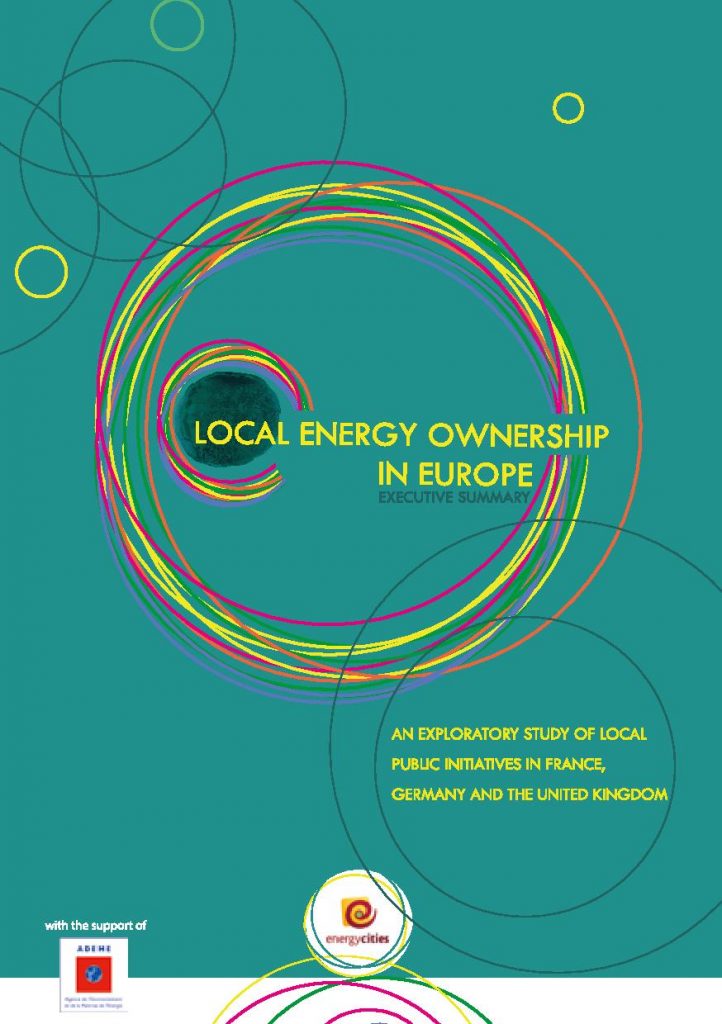Through an exploratory study authored by Andreas Rüdinger and funded by the French Agency for Energy Management (ADEME), Energy Cities decided to shed light on the various nuances surrounding this phenomenon of local reclaim over energy systems and offer new perspectives to cities wishing to replicate successful initiatives. This European overview focuses mainly on three countries: Germany, which could almost be described as the cradle of remunicipalisation, the United Kingdom and France.
Four phenomena
Local energy management can take many forms, and the study outlines and develops four specific processes:
1. Remunicipalisation
2. Political decentralization
3. Citizen projects
4. Participatory governance
The driving role of local authorities
More and more cities are taking a leading role in driving the energy transition, not only as planning authorities but also as an operational actors, inspired in particular by examples of remunicipalisation in the water sector.
“Whether it is through the creation of new integrated municipal companies such as Germany, public energy suppliers such as the UK, or local operators investing in renewable energy and energy efficiency projects. France, we see the outlines of a movement of reappropriation of energy transition by local communities, “the study finds.
Risks and opportunities
The reasons and opportunities that motivate local authorities to embark on remunicipalisation projects are multiple: revitalizing the local economy, creating a close connection with citizens, managing local public services in a more integrated way, fostering cooperation and partnerships with other players, accessing new markets, etc. However, as the study points out, these endeavors can also come with some risks, such as the competitive pressure exerted by the private sector and the limited influence over national and European energy policies.
But we stop the spoiler here and invite you to browse the summary of the study just available online, to be followed soon by the complete version!
